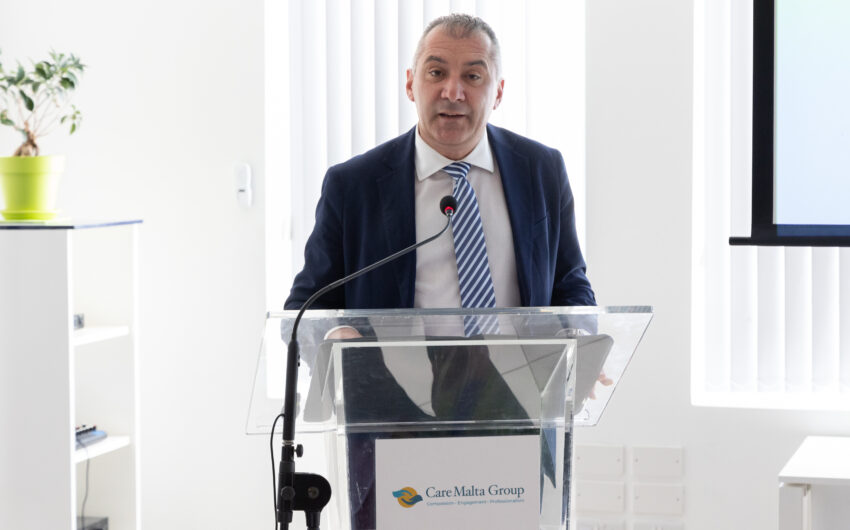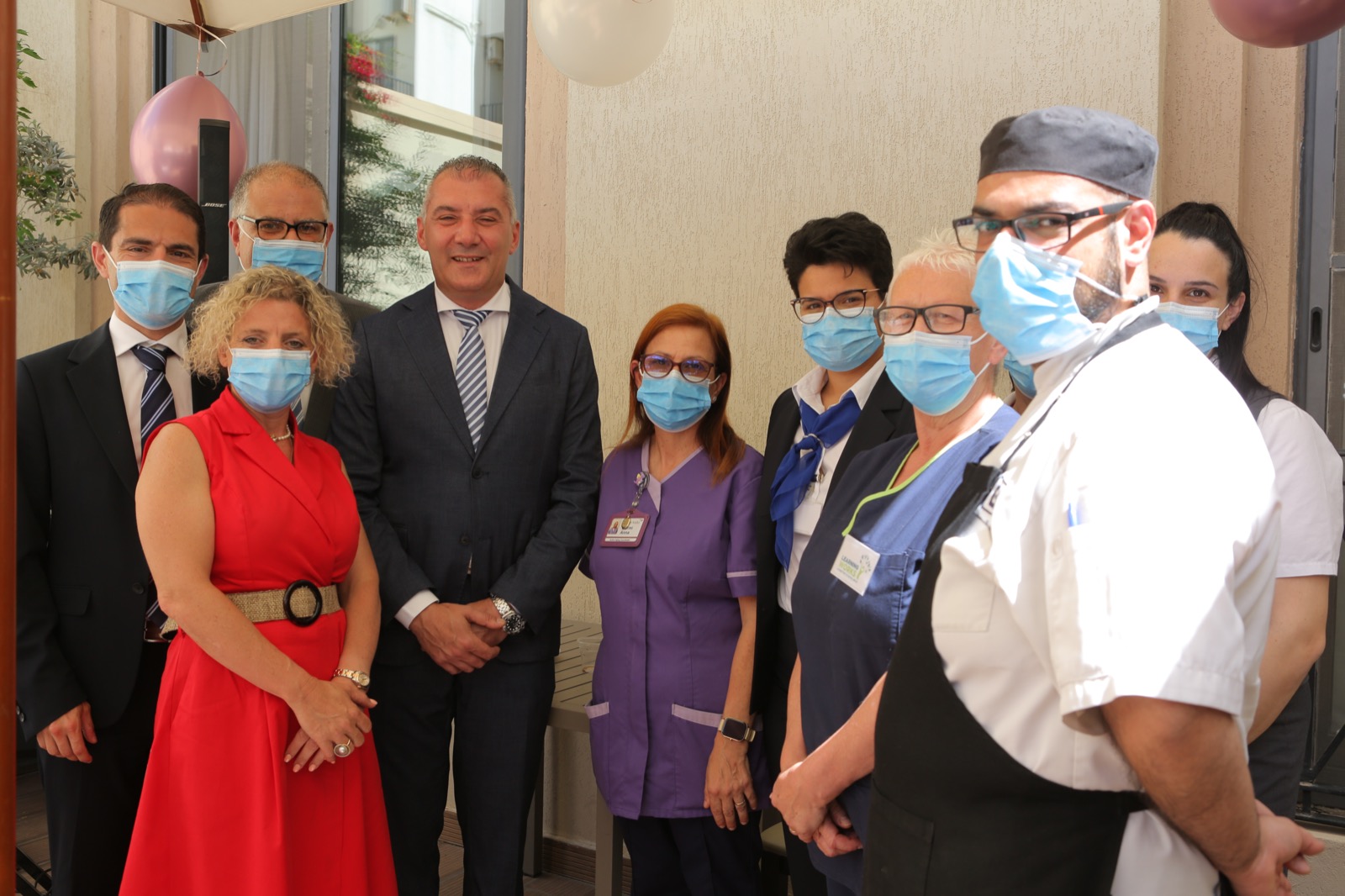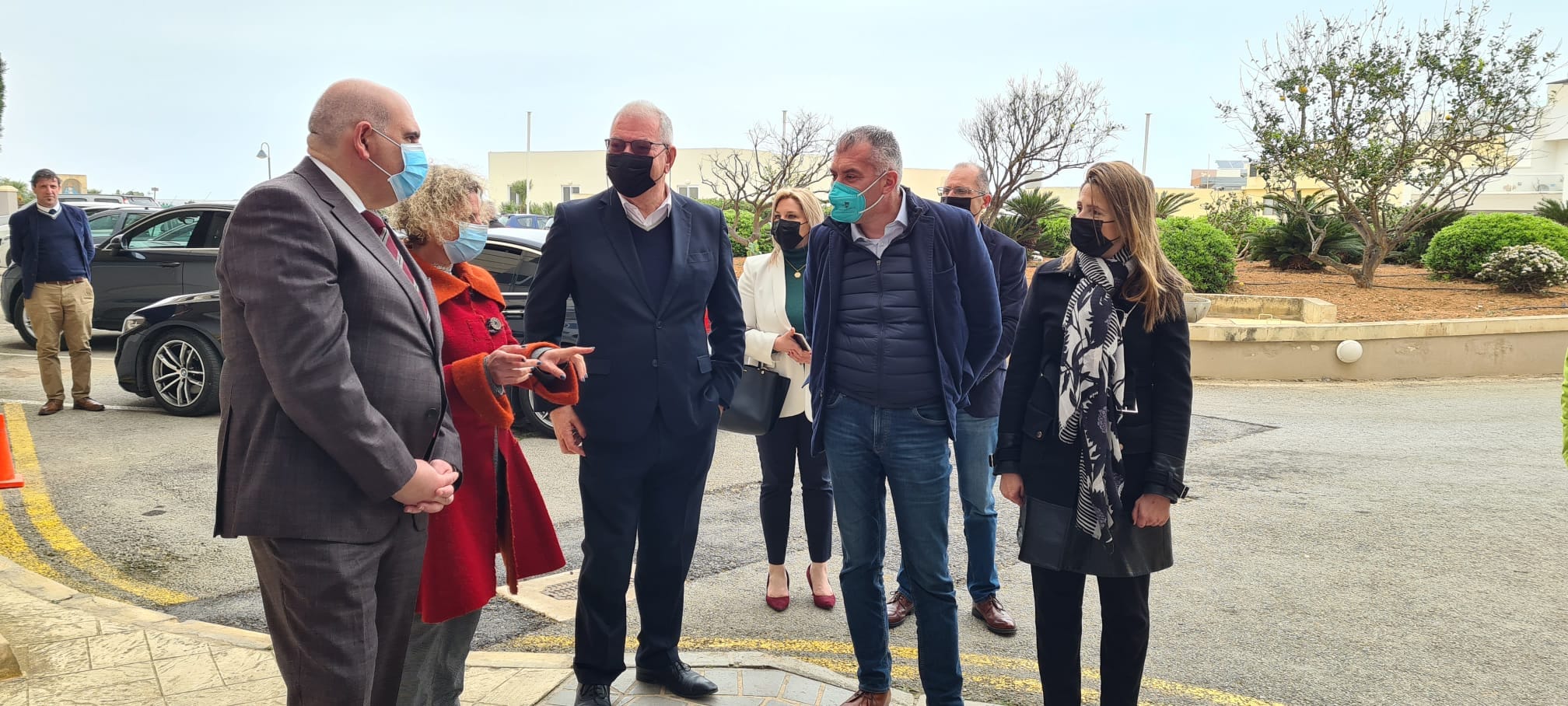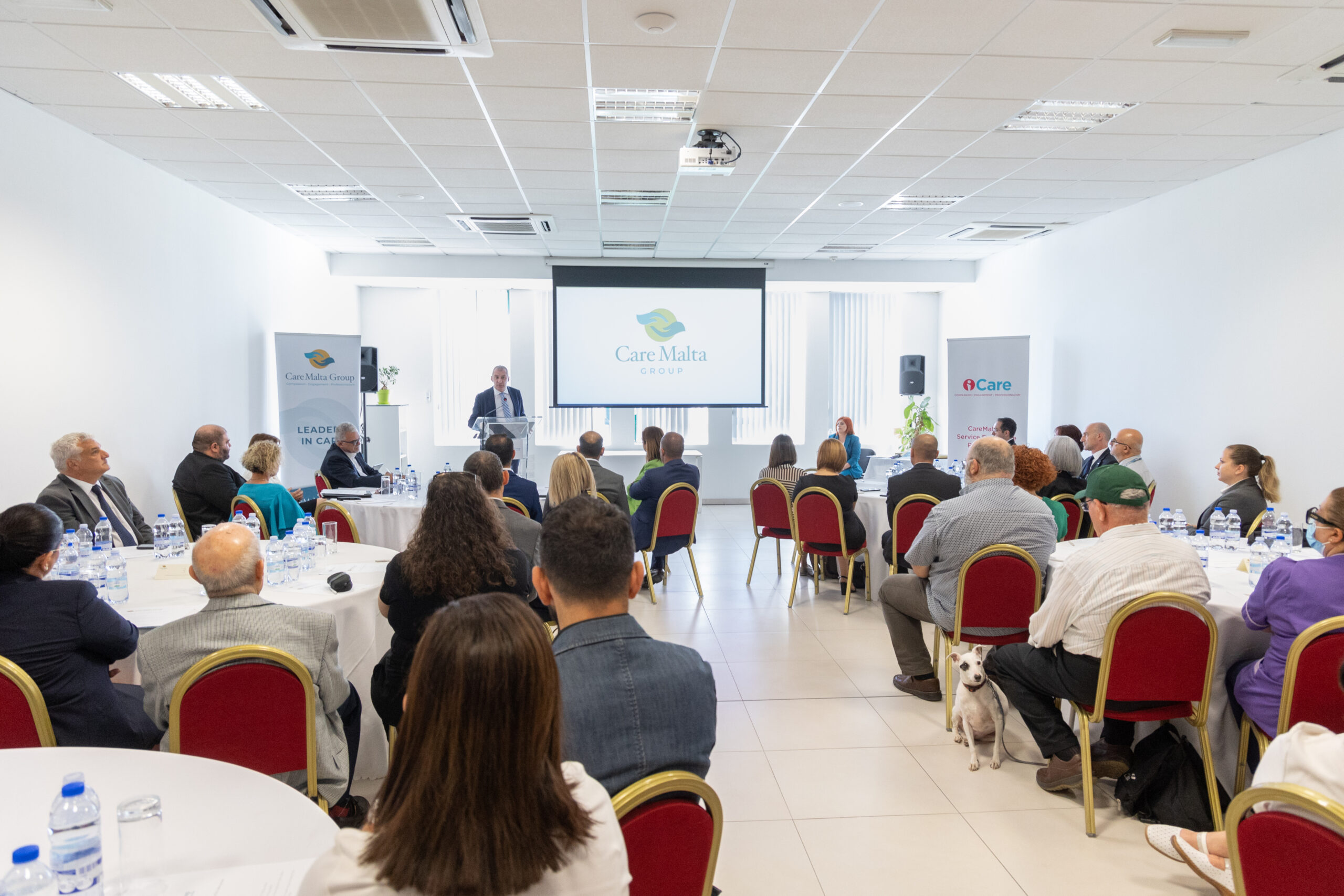
In his interview with CareNet, Minister Jo Etienne Abela, explained his vision for the elderly care sector, the challenges he wants and is addressing, and how younger generations can be encouraged to specialise in elderly care.
What is your vision as the Minister for the Elderly and Active Ageing?
I always tell my students and trainees that open-ended questions are the most difficult to answer. In saying that, my vision is five-fold. Firstly, I wish to engender an inter-generational attitude, whereby the elderly and our younger generations interact and co-operate seamlessly.
Secondly, I wish to increase activity and support for older persons and their relatives in the community. Thirdly, I want to ensure that long-term residences are modern, safe, and equally befitting the dignity of our older residents and our dedicated workforce. Fourthly, I will set up a dementia directorate that will expand, support, and manage our 24/7 dementia intervention team that looks after persons living with dementia and their carers. Lastly, I wish to have older people representatives in all spheres of life, the concept of mainstreaming.

How do you view the elderly care sector in Malta?
It pains me to hear that older persons are viewed as a burden on our society. Throughout their younger lives, these persons worked hard to build our communities and society whilst paying taxes and national insurance. Is it such a big ask to have a decent standard of living in their old age? At 125,000 strong, older persons contribute towards some 15% of our country’s economy, hardly a burden. Younger generations need to look after, look up to actually, and harvest the knowledge, wisdom, and skills sets that older persons have amassed through a lifetime of experiences.
What do you think are the main challenges faced by the elderly nowadays? How can they be addressed?
As a medical doctor, I am all too conscious of the physical ailments that may afflict older persons. Reduced mobility due to joint arthritis coupled with a sedentary lifestyle, may lead to obesity, and then diabetes, visual impairment, wasting of muscle mass, and blood vessel disease that gives rise to heart attacks, kidney failure, amputations, and strokes. This physical infirmity can be addressed by a reasonable geriatric health promotion strategy that encompasses lifestyle modification, smoking cessation adjuncts, careful diabetic and foot care, blood pressure control, and regular heart and eye checks.
Dementia is a situation that a good few rightly perceive to be lurking around the corner. Physical exercise and mental engagement are protective. Medication is not uniformly effective but I plan to push for an additional formulary option for moderate to severe disease in the near future.
Solitude has become a stark reality even in a society like ours, which professes to be close-knit. The COVID-19 pandemic has accelerated its prevalence. Psychological and psychiatric issues creep in and a comprehensive community psychotherapy service is of the essence in addition to compassion. I plan to attract more psychiatrists and psychotherapists to work with us. Moreover, older persons have to beware of various forms of abuse, not least physical (often through domestic violence), neglect, and financial abuse. We need to invest in information campaigns and victim support agencies.
Our well-developed Active Ageing and Community Care arm will re-double its efforts to continue to address all of these issues and aspects.
The risk of inflation and soaring prices is unfortunately a sign of the times. Luckily for us, our government has boosted pensions year after year for the past 8 years, in addition to timely cash injections which were particularly favourable to older persons. Crucially, the government has taken the brunt of energy and food price hikes to maintain stability, thus shielding the most vulnerable whilst supporting the economy at large.
What is the importance of proper care homes for the elderly?
For older persons who are unable to live in their own homes for whatever reason, the care home becomes the new home. In Malta, the Social Care Standards Authority is the legal instrument that, amongst other roles, regulates and licenses these facilities through a set of minimum requirements. It is my intention that this authority sheds off its “extra-elderly” roles in order to super-specialise into an exclusively older person concern. I envisage this to be compassionate with residents, fair but firm with the operators, and implacable with offenders.

What is the main challenge you had to or are still facing as the Minister for Active Ageing?
My concern is for the safety of long-term residents. I admit it is difficult to strike the perfect balance. Safety measures may satisfy the quest for freedom and activity but will necessarily incur a heightened risk to life or limb. Too many measures and safety nets to curb such incidents and people will call you a jailer. I will stand by my ethos as a cancer surgeon that tells me that I would rather suffer criticism whilst trying to deal with a problem or save a life rather than stay put and pussyfoot around the status quo. My surgical logic demands immediate damage control whilst allowing snap-independent inquiries and audits to mature. Then, discuss the conclusions and recommendations with all stakeholders to readily adopt a long-term safety strategy that matters.
In your speech, during CareMalta’s Symposium, you mentioned how it is a priority to make sure that the elderly feel and know they are safe. How can this be achieved?
I think that we need to shift gear and be bold. Information and awareness are key to transmitting our forward-thinking strategy. Mainstreaming is key – ageism is a thing of the past, what we are after is the instalment of older persons in every facet of societal interactions. It will then become easy to avoid, recognise and counter abuse. Our carers need to be primed to the needs of older persons, and well-trained to support them and refer on in order to avert harm. Operators need to be able to demonstrate their commitment and confidence in upholding standards and safety measures.

What is your vision for more collaboration between the public and private sectors in elderly care?
Through the results of studies and audits, the PPP model is proven to be cost-effective. I am confident that higher standards of care can be achieved through it.
In terms of education, do you think that in Malta younger generations are encouraged to specialise in elderly care?
Let me just say that I think we can do much better. There is more to the winning formula than just the financial carrot. We need to shake off the perception that looking after older persons is some sort of a career dead-end. There are plenty of opportunities if only we can make the specialty attractive. We need to instil pride in the caring profession, that sense of dedication and belonging. We need to cast away that ill-feeling of “having to do the chores” and “I’m not supposed to do this or that”.
We need to ensure to bolster morale and not introduce division. “Us and them” is not an ethos, it is toxic and alienating and has to be stamped out. We are all of us called upon to be proactive, to seek help and advice when in doubt. Let us work on spicing and sprucing this speciality up. We can only achieve this by sub-specializing, researching new methods, and discarding the concept of one-size-fits-all. Let us present challenges and push our younger people to excel at finding solutions and then take pride in redefining the priorities and so on to the next challenge.
